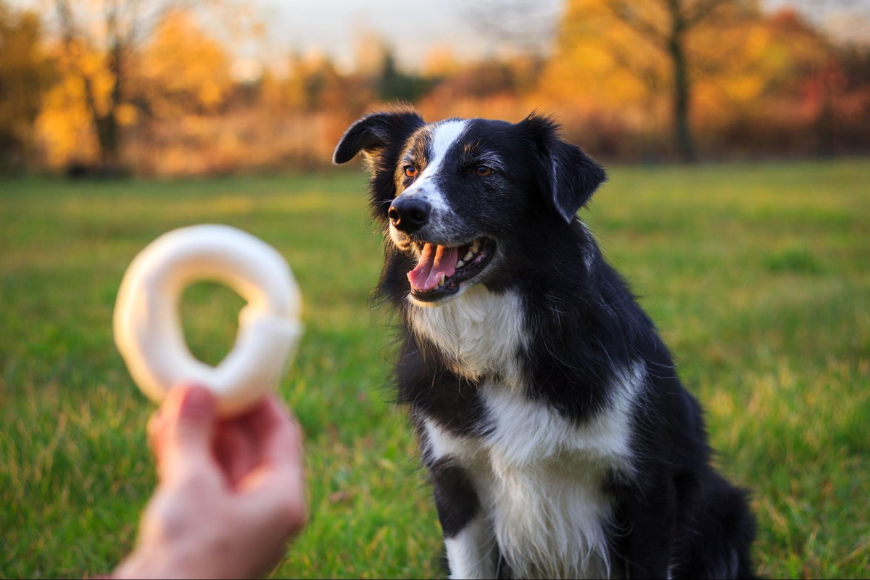
So, your family has just adopted a new pet… This is a wonderful and exciting time for both you and your pet! What’s next?
One of the first steps you should take after your pet adoption in Tampa is beginning the training process.
At the Humane Society of Tampa Bay, we know how beneficial pet training is for pets and their families. It can strengthen the bond between you and your pet, and help make their behavior more consistently aligned with your expectations. The earlier that you invest time and effort into training, the easier the process should become for both of you.
Start Training Early
Beginning training as soon as you adopt can best set you up for success. When starting to train your pet, make sure that your pet’s needs are being met to prevent unwanted behaviors or reactions. This includes providing regular exercise and mental stimulation through playing and appropriate toys. The more often a pet is bored, the more often they are likely to “act out.”
Additionally, train often and in stages. Encourage positive behaviors and redirect unwanted behaviors when you see them occurring. This consistency will help to strengthen the association between “good” and “bad” in your pet’s mind and can strengthen your bond with one another. If you have children in your family, we recommend also involving them in the training and enrichment process, as this can help both pet and child learn how to best interact.
Incorporate Positive Reinforcement Techniques
Positive reinforcement is the introduction of stimuli to encourage positive behavior and correct undesirable actions. Pets tend to learn the most effectively through praise and rewards.
Rewards can include treats, special toys, or even something as simple as a head scratch. These rewards should always be paired with verbal praise in a positive tone.
When using positive reinforcement, the reward should immediately follow the desired behavior to help solidify the association in their mind. With enough consistency, in most cases, training should be seamlessly incorporated into everyday life with your pet. It’s important to remember that pets with traumatic backgrounds or a history of abuse can often have a longer transition period, and require extra patience, love, and attention.
Address Behavioral Issues Effectively and Immediately
There are many instances where a pet may exhibit an undesirable behavior without understanding why it’s undesirable. An example would be a dog barking at the mailman because he wants to say hello, but getting yelled at or reprimanded instead. This can be confusing for the pet and can potentially result in acting out. If you are looking to adopt a dog in Tampa, understand that barking is often a sign of eagerness to show love, but can be corrected with time and training.
Other common behavioral problems can also include scratching, excessive barking, and chewing on furniture and other objects around the house. When these actions occur, identify any situational triggers for the behavior, redirect, and reward the now-positive behavior. For example, if a cat is on the kitchen counter, it is usually because they are curious and want to be around you while you’re cooking. To help correct and redirect this behavior, you might consider providing them with a tall stool and giving them a treat so that they can watch over the kitchen and be close to you, without making a mess on the counters.
Adopt a Pet Today at The Humane Society of Tampa Bay
Adopting a pet is one of the most rewarding experiences one can have. Not only do pets make for loving additions to your family, but they also help improve overall wellbeing. At the Humane Society of Tampa Bay, we are proud to help provide families with our lovable shelter animals through pet adoption in Tampa. And now, you are armed with the tips to help make your pet’s behaviors more positive!




